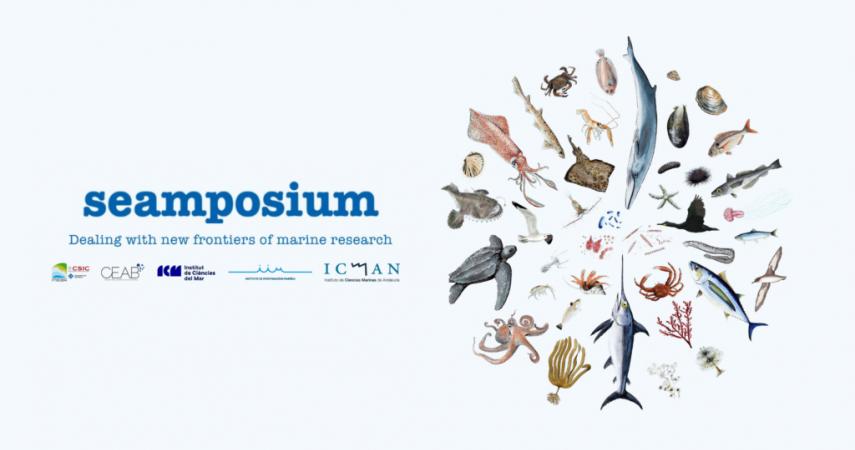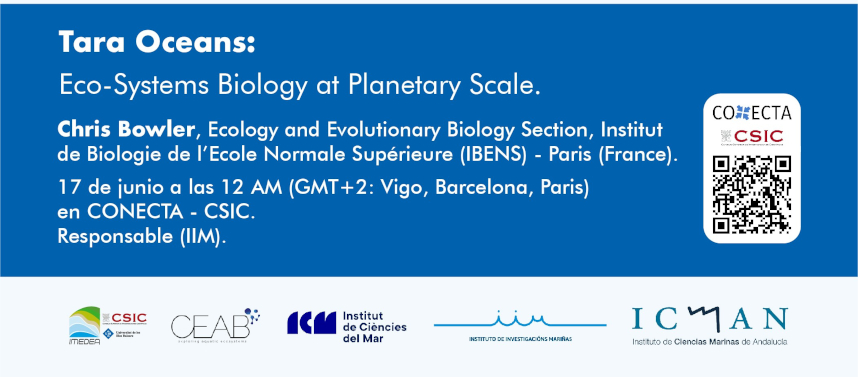Tara Oceans: Eco-Systems Biology at Planetary Scale
Seamposium 2021 | Dealing with new frontiers of marine research

Con motivo de la Década de las Ciencias Marinas impulsada por la ONU (#ODS14) que pretende generar un marco común que garantice que las ciencias marinas respaldan plenamente las acciones para gestionar de manera sostenible los océanos y mares del mundo, y alcanzar así los objetivos de la Agenda 2030 para el Desarrollo Sostenible, los centros de marinos del CSIC: IMEDEA, CEAB, ICM, ICMAN, y el IIM hemos organizado un ciclo de conferencias conjunto titulado “Seamposium: Dealing with new frontiers of marine research” por el cual se crea un Foro de discusión entorno a un seminario mensual realizado por un experto reconocido en diferentes temáticas marinas.
Tara Oceans: Eco-Systems Biology at Planetary Scale
The ocean is the largest ecosystem on Earth and yet we know very little about it. This is particularly true for the plankton that drift within, even though they form the base of marine food webs and are key players in Earth’s biogeochemical cycles. Ocean plankton are at least as important for the Earth system as the forests on land, but most of them are invisible to the naked eye and thus are largely uncharacterized. To increase our understanding of this underexplored world, a multidisciplinary consortium, Tara Oceans, was formed around the 36m research schooner Tara, which sampled plankton at more than 210 sites and multiple depth layers in all the major oceanic regions during expeditions from 2009-2013 (Karsenti et al. Plos Biol., 2011). This talk will summarize the foundational resources from the project, which collectively represent the largest DNA sequencing effort for the oceans (see Science special issue May 22, 2015 and Cell, Nov 14, 2019), and analyses that illustrate several aspects of the Tara Oceans’ eco-systems biology approach to address microbial contributions to ecological and evolutionary processes. The project provides unique resources for several scientific disciplines that are foundational for mapping ocean biodiversity of a wide range of organisms that are rarely studied together, exploring their interactions, and integrating biology into our physico-chemical understanding of the ocean, as well as for identifying new organisms and genes of biotechnological interest. These resources, and the scientific innovations emerging to understand them, are furthermore critical towards developing baseline ecological context and predictive power needed to track the impact of climate change on the ocean.

PARA ESTUDIANTES DE PROGRAMA OFICIAL: se podrá solicitar el correspondiente "Certificado de Asistencia" justo al finalizar el seminario a través de un e-mail al responsable de los Seminarios del IMEDEA (alos@imedea.uib-csic.es) incluyendo los siguientes datos: Titulo del Seminario, Ponente, Nombre completo del Estudiante, Programa de Estudios y Universidad. No se atenderán peticiones fuera del plazo.
